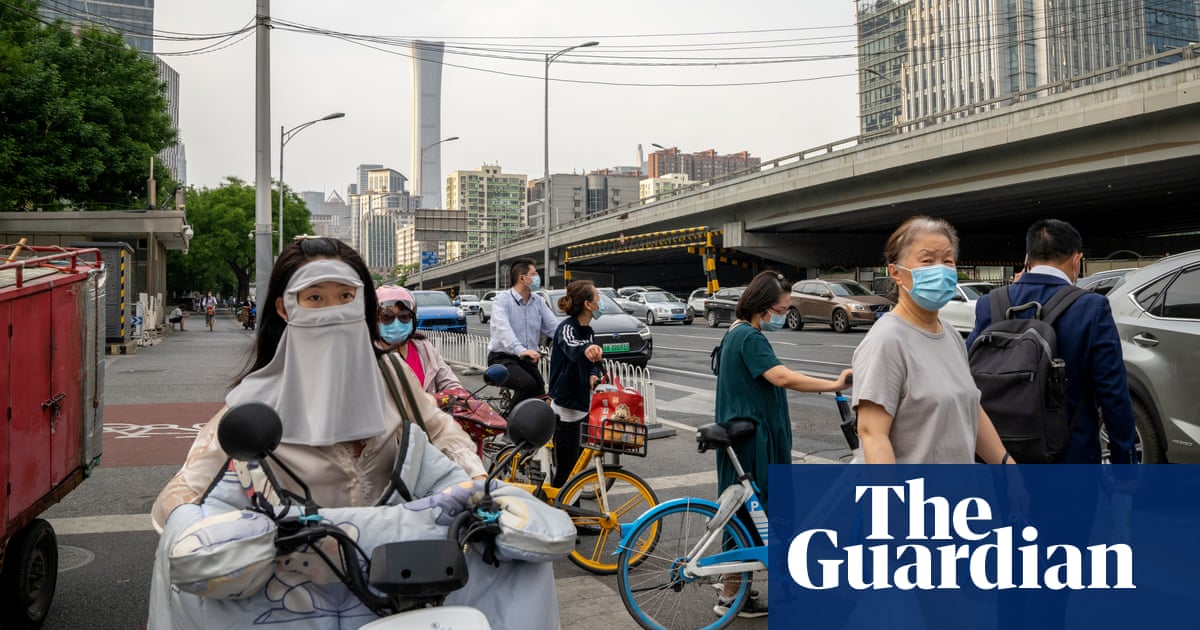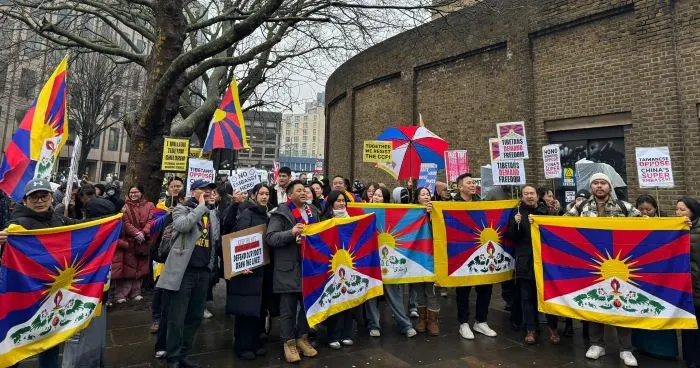Xi Jinping attacks ‘doubters’ as he doubles down on China’s zero-Covid policy
Xi Jinping has confirmed there is no intention to turn away from China’s zero-Covid commitment, in a major speech to the country’s senior officials that also warned against any criticism or doubting of the policy.
Addressing the seven-member politburo standing committee, China’s highest decision-making body, specifically about the Shanghai outbreak, the president said China’s response was “scientific and effective”. He told officials to “unswervingly adhere to the general policy of dynamic zero-Covid”.
“We have won the battle to defend Wuhan, and we will certainly be able to win the battle to defend Shanghai,” he said, according to a translation by Sinocism’s Bill Bishop.
China is the last major economy still committed to a policy of containment and elimination of the virus, despite the increased transmissibility of the Omicron variant, which has overwhelmed other previous zero-Covid jurisdictions. It has largely stuck to the measures employed throughout the pandemic – lockdowns, mass testing and movement restrictions based on health codes.
China reported 4,696 new cases, including 4,269 in Shanghai and 70 in Beijing. Henan province, where the capital of Zhengzhou has just gone into lockdown, recorded 79. On Friday, it postponed the Asian Games, scheduled to take place in Hangzhou in September. New dates will be announced in the future, the Olympic Council of Asia said.
But a weeks-long lockdown in Shanghai created a major crisis, with food shortages and delivery bottlenecks for the 25 million residents, and major business and economic impacts. It also prompted an unusual outpouring of criticism and protest, including on the merits of persisting with zero-Covid against Omicron.
Show more
In his address on Thursday, Xi appeared to send a message to those wavering, saying: “We will resolutely struggle against all words and deeds that distort, doubt and deny our epidemic prevention policies.”
Xi’s address also called out “problems of inadequate understanding, inadequate preparation and inadequate work [and] resolutely overcome the ideas of contempt, indifference and self-righteousness”.
An analysis of the speech by the China Media Project said the language should be seen as “a direct criticism of unspecified local CCP leaders who have questioned the policies at the centre, or who have been insufficiently successful in applying them”.
It added: “And it is difficult not to hear in this phrase about ‘self-righteousness’ a condemnation of leaders in Shanghai in particular.”
Health experts agree with Chinese authorities that vaccination and booster rates are too low, and health resources too inequitable across regions for the country to risk opening up. However, analysts say the zero-Covid policy is now so entrenched in the political legitimacy of the Chinese Communist party and Xi that even when conditions change there is no way out, barring a major and potentially damaging backdown.
Economists have forecast a worsening economic situation if Shanghai-style lockdowns continue. One analyst this week projected it would cost $257bn, 1.5% of China’s 2021 GDP, by the end of the year if every tier-1 city employed the thrice-weekly testing regime currently operating in Beijing and other places.
During the five-day labour day holiday, which ended on Thursday, there was a 43% year-on-year reduction in tourism spending. Rail journeys were down by more than 70%.
In the capital, Beijing, authorities have resisted a city-wide lockdown, instead imposing movement and transport restrictions, activity and venue shutdowns, and lockdowns of individual residential compounds. It has ordered people from some districts to work from home, and reopened mass quarantine centres to house mild













